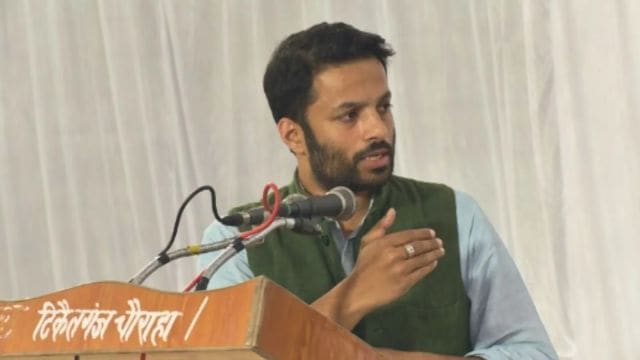
The Supreme Court’s order in State of Haryana vs Ali Khan Mahmudabad ought to send a chill down the spine of those who care for constitutional values. Their Lordships, mercifully, granted bail to Professor Khan. His arrest is scandalous even by our low standards of civil liberties protection. But the order, even in granting relief, will have the effect of undermining free speech protections. We are now in a constitutional regime in which even the Court’s philanthropic benevolence in granting bail (and that is what bail has become) lays the groundwork for further oppression.
This is so for a number of reasons. First, the conditions of the order in itself are an unwarranted denial of rights. Khan, an academic, has been asked to surrender his passport and desist from writing. It is a relief that he is not in jail. But, in effect, the SC has already punished him for an uncertain duration, a punishment he does not deserve. It is hard to imagine that the SC is so naïve as to not understand the way social control is being exercised, and liberty curtailed, through the semblance of procedure. Procedure is very important to law, and properly done, can constitute an essential element of legal safeguard. It is no secret in India that procedure is not a safeguard. It is an ideology behind which the legal profession hides to obscure substantive matters of rights and justice. It is also no secret that due process is the punishment. It is also no secret that the façade of proceduralism is quite compatible with the exercise of wide discretion, especially amongst judges. So, when the Court lays down these conditions, under the cover of granting some form of procedural justice, it, in effect, is being mendacious about protecting the basic rights in question. If the condition of bail in a case of a citizen’s arrest, not for a crime, but for exercising their ordinary rights, is onerous, the procedure of protecting that right is also a deterrent to free speech.
The SC’s jurisprudence on Article 19 has been, let us say without dog whistling, inconsistent at best. But in some ways, it is getting worse. It is a platitude that there is no such thing as absolute free speech. But the restrictions on speech have to be, even in Indian law, very narrowly tailored to things such as very evident incitement and disruption of public order. Two, shifts in legal culture are dangerous — they have enabled the requirement that free speech is only for “virtuous” speech. This is not the occasion to litigate the merits of Khan’s post. The issue is not his merit, but his rights. As a matter of debate, in the public sphere, people may very well judge these posts to be ill-advised or unpatriotic. It is their right to do so. But as a constitutional and legal matter, it ought to be worrying when plaintiffs are almost forced to prove that their speech has patriotic merit. In fact, there is no bigger dog whistle than the state looking for patriotic merit in speech and for every citizen to prove that they are patriotic. For one thing, patriotism is a nebulous object. Who sets the standard? Under current standards, I am pretty sure Mahatma Gandhi, Jawaharlal Nehru, and possibly even B R Ambedkar would have, at various moments, been deemed unpatriotic. In some ways, by shifting the terrain to patriotism, the Court is, consciously or unconsciously, legitimising an ideology, not protecting speech or liberty. It is not the Court’s job to be the schoolmaster of patriotism.
But this episode is chilling in another respect. Initially, this episode was presented as a local anomaly — the Haryana State Commission for Women and local BJP leaders scoring brownie points. But now, two things are clear. First, the state at the highest levels is committed to making an example out of Khan. The state could easily defuse this matter, even after the filing of the FIR, if it wanted. It continues a disturbing pattern of exemplary targeting, which is the form in which this government exercises social control. The second is that the new Chief Justice had a golden opportunity to create a court that returns to the first principles of liberal jurisprudence and cuts through the clutter of inconsistencies and arbitrary discretion that has shaped Indian law. That opportunity has been missed.
Second, it is also becoming evident that all kinds of functionaries, whether in courts, bureaucracy, police or academia, are refusing to make a very basic distinction. Let us say, for argument’s sake, Khan’s post ought to be critiqued, as a letter by 200 prominent academic functionaries has done. They have a right to critique. But the idea that we immediately jump to legal prosecution is the road to disaster.
We are grateful that their Lordships have at least shown that bail is still possible. But their benevolence also casts an ominous shadow on our rights.
The writer is contributing editor, The Indian Express